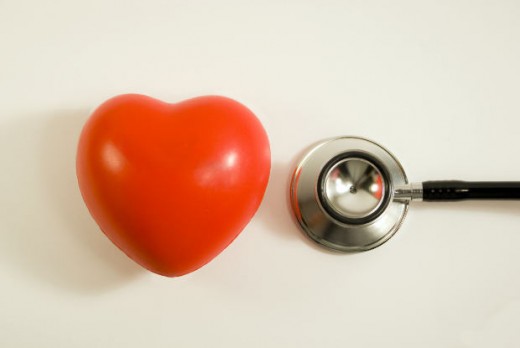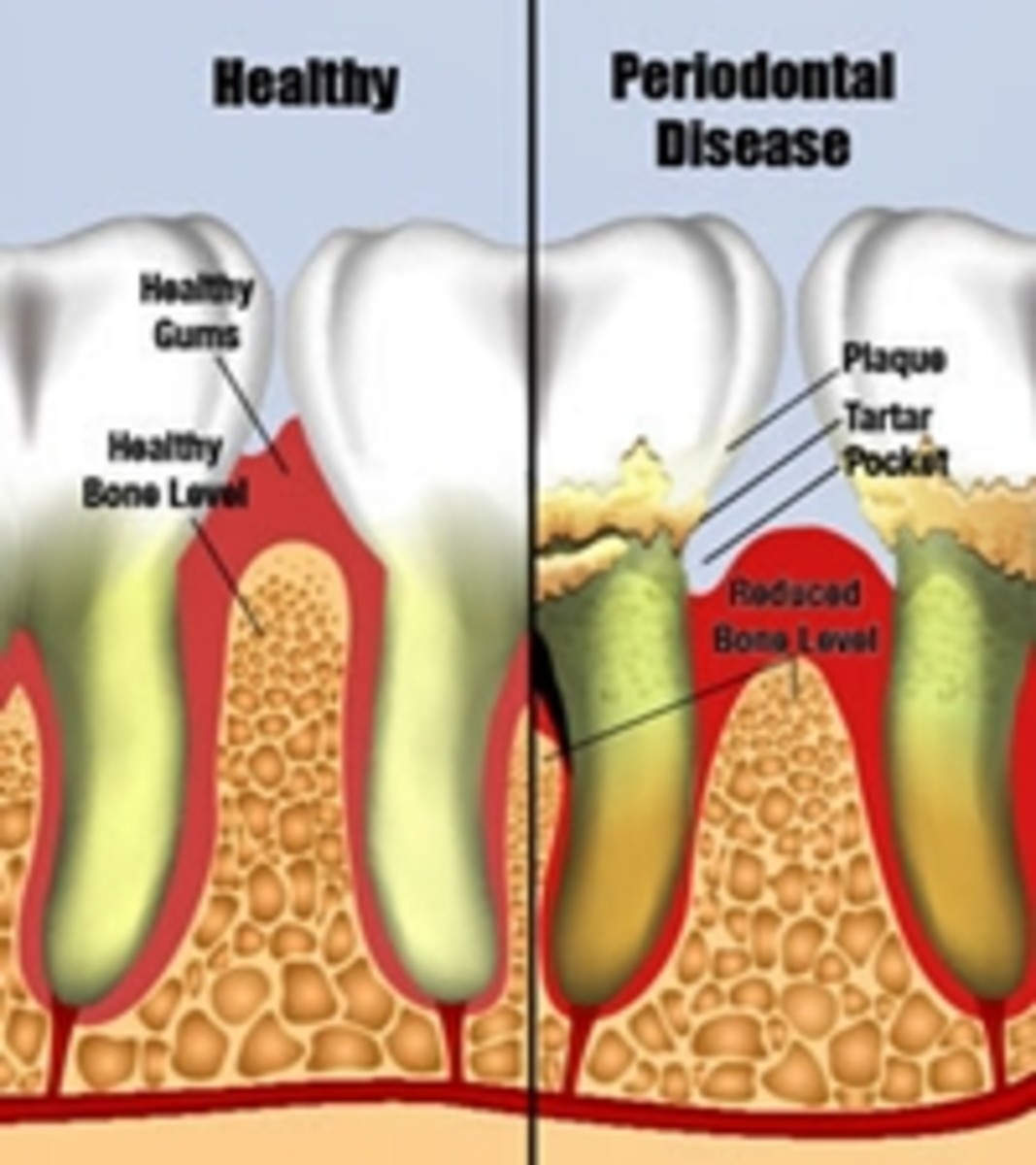A Popular Health Delusion: Prevention of Coronary Heart Disease by Diet Change

In this article, I address the opinion that we should have diets that are low-fat and have a low cholesterol intake. For the standpoint of prevention of coronary heart diseases, there is little data to support this type of diet, especially for those who are over 65 years of age. Scientific research doesn't support low-fat, low cholesterol diets. This common fallacy is exposed and a prominent critic of this dietary fad, Michael Fitzpatrick, is featured.
I don't want you to think that all dietary changes can't affect coronary heart diseases. I does seem that eating fruits and vegetables and taking antioxidants that are plant derived do have a positive effect. In other articles, I have covered quercetin, which is a flavonoid in the same class of chemicals that are found in chocolate. This class of chemicals have been found to help with preventing LDL oxidation which can lead to atherosclerosis. For more information on this read my articles on quercetin and chocolate regarding heart health.
Reduction of Cholesterol by Diet Delusion
I was reminded of the old book, Memoirs of Extraordinary Popular Delusions and the Madness of Crowds (by Charles McKay) as I was reading The Tyranny of Health Doctors and the Regulation of Lifestyle by Michael Fitzpatrick, M.D. Fitzpatrick covers various aspects of public health policy that have strongly influenced lifestyle choices for many people. Dr. Fitzpatrick calls into question the data which has been used to support these policies and the resulting propaganda which we hear almost daily.
Prevention of coronary heart disease (CHD) by diet change is a significant part of his book. In this section of his book, he covers the weakness of the data that is used to support public health policy for dietary changes. The author's primary focus regards the reduction of cholesterol. To sum it up, the data is not overwhelming convincing for dietary changes for the reduction of one's cholesterol. I discuss the available data and explain it in a way that anyone, even non-scientists, can understand the difference between relative risk and absolute risk, things that government policy makers haven't explained to the public.


Effects of Dietary Changes on Cholesterol and CHD
Cholesterol is one of three factors which are associated with increased risk of CHD. The other two are saturated and unsaturated fat intake. Diets which attempt to modify blood (serum) cholesterol aim to reduce consumption of saturated fats and cholesterol.
According to a systematic analysis of many studies, there is a minimal reduction in serum cholesterol attained by dietary changes. (1) Diets included in the analysis were steps 1 and 2 of the American Heart Association's guidelines. Dietary changes with each of these resulted in a 3% and a 6% reduction of blood cholesterol, respectively. Public proponents of changes in diet ballyhoo pie-in-the-sky reductions of 10-15%.
There is an interesting theory as to why there is so little reduction of cholesterol through dietary intake. Le Fanu (2) postulates that these reductions are counteracted by production of additional cholesterol in the liver to maintain constant serum cholesterol levels. The liver accounts for most of our serum cholesterol, as it is needed for many processes in the body, including fortifying membrane structure, digestion of fats as a component of bile and production of vitamin D.
Relevant Books for Further Reading

Dr. Fitzpatrick's Comments About Dietary Change
Here is a quote from Dr. Fitzpatrick that bears on the effects of dietary changes and preventative measures for prolonging life:
"the concept of prevention is abused: death cannot be prevented, only postponed. Unfortunately, given the current state of medical science, death can generally be postponed only for a relatively short time by relatively intensive preventive measures."
The portion of the population affected by CHD the most are those who are greater than 65 years of age. Bonneux and Barendregt (4) found that, as a consequence of a 10% reduction of serum cholesterol, people who were 65 or older could expect to live an additional 2.5 to 5 months. Thus, the effect of diet changes to improve your life span is relatively small. And given the real reductions of 3-6%, as noted above, it is even smaller. With these numbers, dietary change would increase the life span by only 1-3 months.
Dr. Fitzpatrick also quips that “if dietary change is being recommended for everybody, then its benefit must be measured across the whole population. Faced with the choice between forgoing the pleasures of meat and cheese and prolonging a miserable fruit and fibre existence for a few more months, many people might opt to eat now and forfeit the few extra months.”

Consider Also the Statistics and What They Really Mean: Absolute Risk vs. Relative Risk
There is the problem with understanding the statistics of research data for most people (especially the media). They are usually expressed as numbers of people who die from CHD per 1000 in the population. As an example, if you were taking a pill daily for 10 years and it reduced your risk from 2/1000 to 1/1000, the scientists would report that there was a 50% reduction in the incidence of CHD deaths.
According to Vine and Hastings (5), most doctors would wholeheartedly agree to taking that pill if they were told that it would decrease CHD mortality 50%. However, when given the 2/1000 to 1/1000, they understand the insignificance of that 50% reduction. A 50% reduction of a very small possibility is a very, very small possibility. Thus it would be of "trivial clinical importance" to take this pill.
As the data points out, living another 1-3 months because of dietary changes is of trivial clinical importance and it should not impress any reasonable, thinking person to make severe changes in what they eat. As Fitzpatrick points out, " A man advised of his chances in these terms might well decide to live dangerously, but happily, on bacon and eggs, rather than marginally more safely on muesli and skimmed milk, with the added risk of dying miserable and flatulent."
Michael Fitzpatrick Discusses Government Involvement in Society
References
1. Tang, J.L., Armitage, J.M., Lancaster, T., Silagy, C.A., Fowler, G. H. and Neil, H.A.W. 1998. Systematic review of dietary intervention trials to lower blood total cholesterol in free-living subjects. British Medical Journal April 18; 316(7139): 1213–1220.
2. Le Fanu, James (2000). The rise and fall of modern medicine. New York, NY: Carroll & Graf.
3. Fitzpatrick, M. The Tyranny of Health Doctors and the Regulation of Lifestyle.
4. Bonneux, L., Barendregt, J.J. (1994) Ischaemic heart disease and cholesterol.
BMJ, 308: 1038.
5. Vine, D.L., Hastings, G.E. (1994) Absolute risk more informative than relative risk, BMJ: 308:1040.








